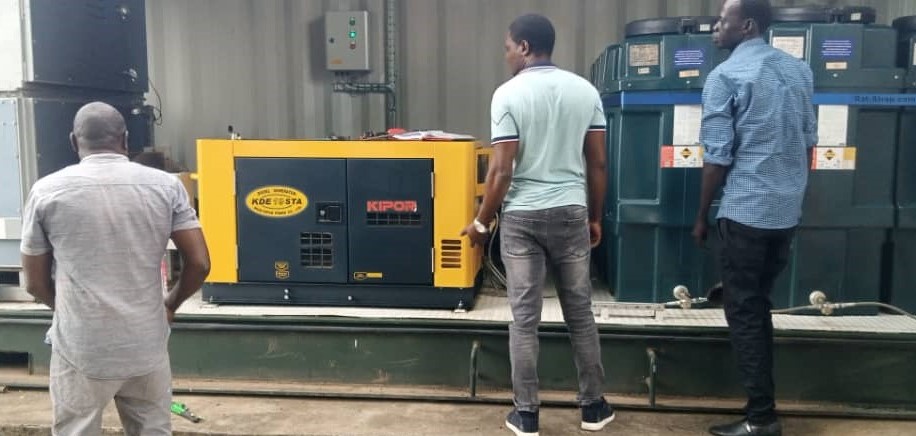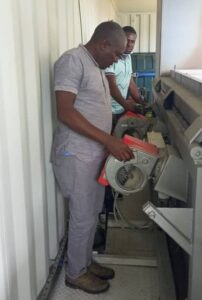A South-South Technical Assistance Monitoring Visit to Strengthen South Sudan’s Central Laboratory’s Incineration Capacity

Following an initial site visit in March 2022 that focussed on the installation and commissioning of the high-capacity incinerator at South Sudan’s National Public Health Laboratory, the ASLM and the ministries of health for South Sudan and Zambia recommended a second visit by the Zambian healthcare waste management team to consolidate this capacity.
This second visit focussed on evaluating the operation of the incinerator based on guidance initially provided by the visiting engineers and biomedical and environmental scientists. This visit comprised a multidisciplinary team of two biomedical engineers, two biomedical scientists, and an environmental scientist who supported South Sudan with:

- undertaking planned preventive maintenance, servicing, and repairs of the incinerator
- assessing progress with the implementation of recommendations from the first visit (construction of a ramp, expansion of the waste holding area, extension of the chimney, provision of waste handling and monitoring tools such as a waste register, and the use of appropriate personal protective equipment and waste weighing scales)
- conducting a refresher orientation on general waste handling and proper operation of the incinerator
Based on the performance assessment conducted during this visit, the team was able to:
- service, maintain, and repair the incinerator and auxiliary equipment
- provide additional orientation on the general operation and basic maintenance of the incinerator to the waste handlers and biomedical engineers, respectively
- conduct a second orientation of the National Waste Management Committee on key aspects of waste management and disposal through incineration
- hold meetings with the senior management teams at the ministry of health and partners supporting waste management to highlight key support areas that require their intervention
The current capacity of the South Sudan central incineration facility, located at the National Public Health Laboratory, is sufficient to handle all waste, including guanidinium thiocyanate (GTC)-containing waste from both GeneXpert and conventional PCR platforms for viral load and early infant diagnosis (EID) testing. To ensure that this capacity is not only maintained but effectively utilised, it is critical for country-level partners to provide ongoing support to the National Waste Management Committee responsible for guideline development and oversight, the Engineering team responsible for servicing and maintenance, and waste handlers responsible for daily operation.
